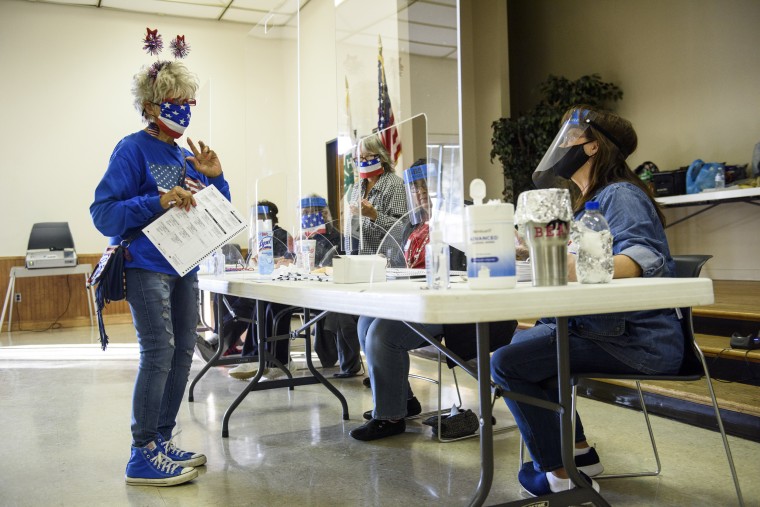The Supreme Court ruled 8-1 on Thursday that leaders of North Carolina’s Republican Legislature can step in to advocate in court for a voter ID law that they believe the state’s Democratic attorney general isn’t fighting hard enough to defend.
The Republican-controlled Legislature passed the law, but the governor and his attorney general are Democrats, giving rise to a case that presents a dispute about what happens when political parties don’t control all the branches of state government.
In 2018, North Carolina voters approved an amendment to the state constitution requiring a photo ID to vote in person at the polls. When the Legislature passed a law to specify how the provision would work, Gov. Roy Cooper, a Democrat, vetoed it, but the Legislature then overrode his veto and enacted the measure.
Writing for the majority, Justice Neil Gorsuch said Thursday that state legislators could defend the law.
"Through the General Assembly, the people of North Carolina have authorized the leaders of their legislature to defend duly enacted state statutes against constitutional challenge," he wrote. "Ordinarily, a federal court must respect that kind of sovereign choice, not assemble presumptions against it."
The state law is not one of the country’s more demanding voter ID measures. Classified as “non-strict” by the National Conference of State Legislatures, it would allow voters who show up at the polls without IDs to cast provisional ballots, which would be counted if they later presented qualifying IDs to county boards of elections. Another provision says ballots must be counted if voters stated that a “reasonable impediment” prevented getting the required ID.
Nonetheless, the NAACP challenged the law in court, arguing that it intentionally discriminated against Black and Latino voters and unduly burdened the right to vote. A federal judge agreed and issued an injunction to block enforcement of the law, but a federal appeals court lifted the injunction.
The law remains blocked, however, because of orders issued by state courts in separate litigation. That matter is now before North Carolina’s Supreme Court, which has not yet scheduled courtroom argument.
The state’s Democratic attorney general, Josh Stein, defended the photo ID law in both federal courts, but Republican legislators said his efforts were halfhearted, concerned more with administrative issues than with countering the discrimination claims. The federal courts said, however, that the attorney general was doing an adequate job.
That prompted the speaker of the General Assembly and the president pro tem of the Senate to ask the U.S. Supreme Court to let them intervene in the case, arguing that state law explicitly gave them the authority to defend the laws that they passed. With the high court's decision, they now have that authority.
Defenders of the photo ID requirement will need to prevail in both state and federal court, however, for the law to be enforced. The Republican legislative leaders can pursue the federal case as full participants.

